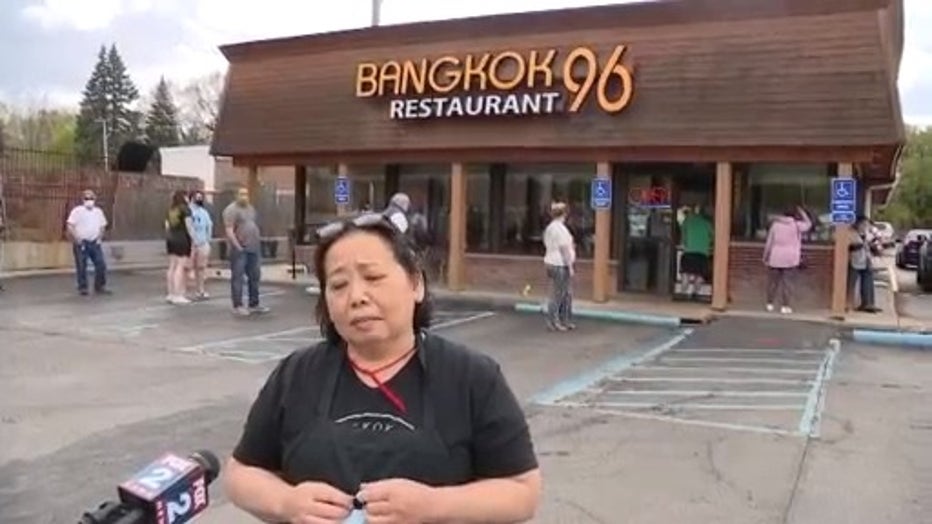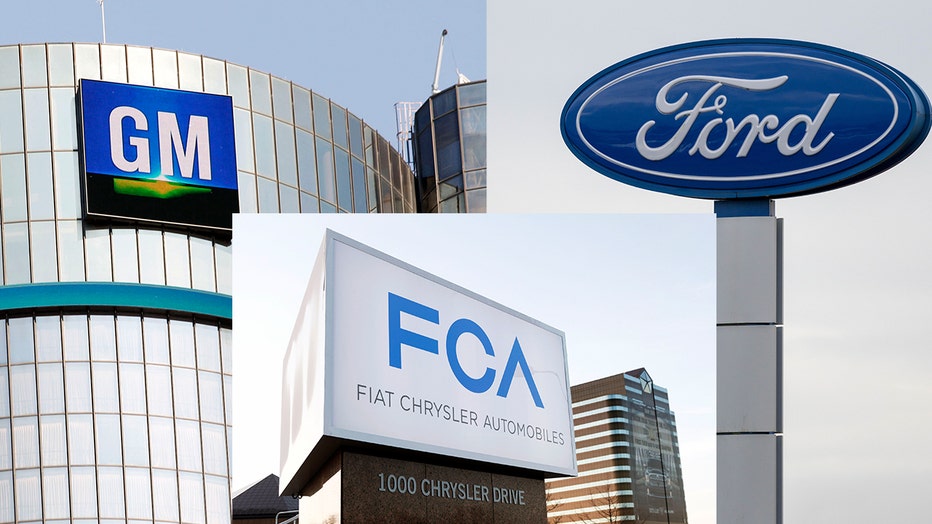Big Three plants restarting could be lifeline to struggling businesses
DEARBORN, Mich. (FOX 2) - Business is picking back up at Bangkok 96 on Telegraph.
And starting Monday it could be roaring. That's when The Big Three will reopen plants after the COVID-19 crisis forced their temporary closures.

Big Three restarting plants could be lifeline for struggling businesses
About 150,000 people could be back on the assembly line next week and restaurants like Bangkok 96 won't be the only ones to find better footing as The Big Three gets the wheels turning again.
"It's been difficult. it's emotionally physically mentally it's very hard to, because this is the first time something happened like this," said Genevieve Vang, Bangkok 96.
Chef Genevieve Vang owns the Thai restaurant and relies heavily on the support of Ford workers. It's been open for roughly two weeks -recovering from a sizeable financial hit when the COVID-19 Stay at Home orders forced it to close for more than a month.
"Bill Ford, thank you so much for opening Ford Motor Company," she said. "I think that's going to help us bring more business and without your company it's hard to succeed."
"Next week once the automobile factories get open, especially in the product development in Dearborn, this business will be back on board for lunch and dinner as well," said Sham Patel, Ford Powertrain engineer.
About 150,000 people could be back on the assembly line next week and restaurants like Bangkok 96 won't be the only ones to find better footing as The Big Three gets the wheels turning again.
"You have to remember, by most studies, every job on the assembly line creates as many as seven to eight more jobs," said Paul Eisenstein, TheDetroitBureau.com. "These can be at supplier plants, at dealerships, at marketing and advertising companies, even the companies that cater or do lawn mowing at the plants. So all told, this could affect more than a million jobs."

Promising news, but auto expert Paul Eisenstein warns the potential economic recovery could be stalled if COVID-19 spreads inside auto plants.
While automakers have plans in place to keep to keep the virus at bay, a worker at Fiat Chrysler's Sterling Heights Assembly Plant learned she tested positive for COVID-19 while on the job, potentially putting others at risk.
"The reality is there is no way to guarantee that a worker won't get infected somewhere," he said. "But the question is, do these playbooks, the rules the automakers put in place, go far enough that if somebody does go into work sick, that they can minimize the risk of spreading the infection to other people."
That's going to be the big test and we'll find out soon how the automakers will fare. There is a lot on the line.


